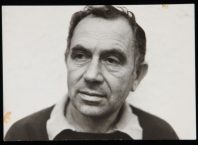Something wonderful is happening in Jerusalem, and its coming your way. Over the past five years, Beit Avi Chai has become a wellspring of creativity with an abundance of innovative, fun programs inspired by one of the oldest sources in the world: Jewish culture. The encounter between Jewish tradition and contemporary Israeli culture has been known to set off sparks on many occasions, at Beit Avi Chai they come together to illuminate one another, generating learning, laughter and light.
From the Piyyut Festival to Rock ‘N Roll and Hebrew Jazz, from Talmud study groups in Hebrew, and discussions of Parashat Hashavua in English, to the wild satiric humor of “Slaughtered Cow,” and the annual showcase of English-speaking theatre, the programming is diverse and embraces a wide spectrum of perspectives. The center recently celebrated its 5th anniversary and Beit Avi Chai Director Dani Danieli shared the secret to Beit Avi Chai’s success with Midnight East. It turns out it’s very simple…and complex.
“Beit Avi Chai is a Jewish Israeli cultural center,” said Danieli. Established by the Avi Chai Foundation (a private foundation endowed by Zalman C. Bernstein), their interpretation of their role is informed by the foundation’s motto: “Let’s be focused.” The essence of their endeavor is determined by a vision: to bring to light and empower diverse aspects of Jewish Israeli culture through creative programs, and inundate the contemporary cultural scene.
“We ask ourselves: what’s right for us?” said Danieli, “How can we challenge the audience – because we don’t really like to ingratiate ourselves with the audience. We can take risks.” Unlike commercial venues working under the imperative to maximize audience size and box office profits, as a non-profit organization, the box office “is not the leading parameter for measuring success.” Danieli mentioned a recent concert, “Silsul Mekomi/A Local Lilt,” pairing jazz composer/pianist Omer Klein with Mizrahi music’s legendary guitarist Yehuda Keisar, as an example of these risks in terms of attracting an audience, saying, “It has a Mizrahi feel, but it’s not really a concert of Mizrahi music, it has the feel of jazz, but it’s not quite jazz.” This kind of fusion programming, merging different worlds, prompts the question: who will come? Yet come they do, the halls, rooms and courtyard of Beit Avi Chai fill up year round – and not just with locals. Danieli conducted an informal poll – by a show of hands – on Shavuot and Tisha B’Av (two of the center’s signature programs) and found that 50% of those present were not from Jerusalem.
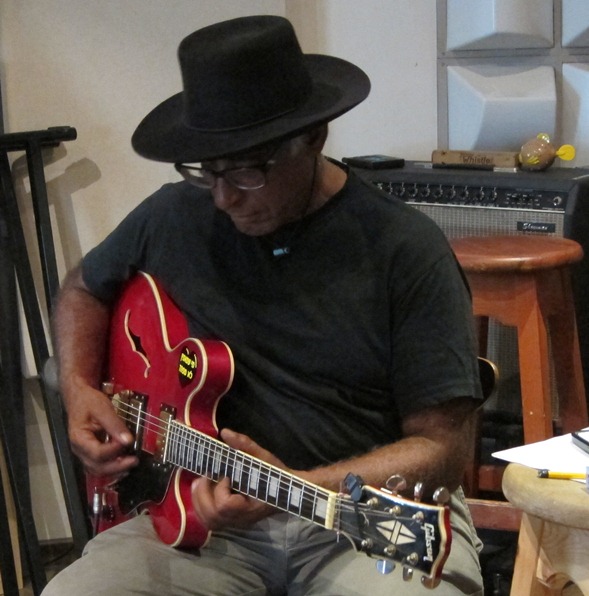
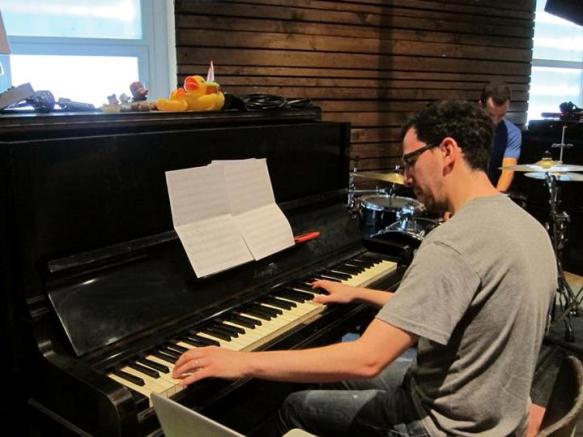
How is a Beit Avi Chai program born? “Beit Avi Chai lives by the Jewish calendar,” said Danieli, and programs are often inspired by the rhythms of the Jewish year. Yet that is just the beginning. The programs and projects department meets every two weeks for a brainstorming session. “We create programs,” said Danieli, “We can decide – yes, we want to look at International Holocaust Memorial Day. That was a decision we made two years ago. Then we start thinking: which direction should it take?” Some programs are produced in-house, while for other projects producers may be hired to take an idea to fruition. Beit Avi Chai also receives applications with suggested ideas, “At first there were very few,” said Danieli, “now our plate is overflowing…we receive about 100 applications each month, of these, perhaps 40 are relevant.” Yet in all cases, the creativity does not end with the initial idea; that is just the beginning of a process.
Beit Avi Chai’s non-traditional approach to tradition and creative programming has made a significant imprint on the Israeli cultural scene. In addition to the immensely popular Shavuot program and miniature Sukkah competition/exhibition, these include the monthly Rosh Hodesh celebration, a tradition begun in the center’s first year, featuring a lecture or discussion on a relevant topic, followed by a group sing-along; Sig’d celebrations with stories and songs of Beta Israel; and the recent Tisha B’Av marked by a discussion of the problem of hatred in Israeli society, with lecturers and films relating to the topic.
“One of our privileges is enriching the program,” said Danieli, “we can have an academic program with artistic content.” This inter-disciplinary approach applies to projects accepted from outside sources as well, Danieli related that it is rare that a program is accepted “as is,” most ideas are developed through a dialogue with the artist/lecturer according to Beit Avi Chai’s philosophy. “We ask a lecturer – what do you think of adding music or film? – not because we’re bored,” explained Danieli, but because we believe that even when you deal with knowledge, information, or history, it takes on authority through an enriched experience.”
Dialogue – between intellectual and artistic disciplines, between Israeli and Jewish culture, between people – this is one of the defining elements of Beit Avi Chai: an open dialogue with no predetermined conclusions, allowing freedom of expression and the freedom to listen and experience. Some of the most interesting dialogue goes on behind the scenes. Beit Avi Chai has a “thought and consulting” team (Izhar Hess, Avirama Golan, Rivka Miriam, Dror Mashani, Roni Somekh, Hagit Bartov, Ariel Hirshfeld, Rabbi Itzhak Shurkai, Karen Weiss) whose role is to examine and critique the plans for future projects, similar teams can be found in many non-profits. Yet Danieli revealed an unexpected twist in this internal dialogue: “They tell us what they don’t like, what concerns or bothers them, but they don’t have the authority to tell us what to do.” Perhaps as a result of the open nature of this relationship, Danieli said of the team, “They brought us to very interesting places. They led us to deal more with current events (they are responsible for the Friday current events program with Dalik Vulinits), they pushed us to create programs that relate to the Hebrew language as a factor in Jewish/Israeli identity, they pushed us to deal with Zionism and to create a Beit Midrash. They are very intelligent people and we listen to them. They are not the Devil’s advocate, they are the advocates of the Angel Gabriel.”
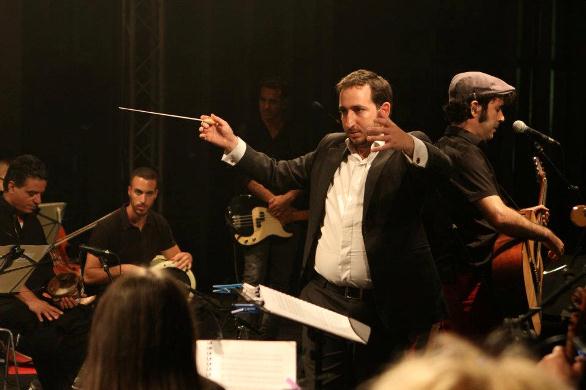
Beit Avi Chai has become such a central part of Israeli cultural life, that at the recent celebration of the center’s 5th anniversary, the comment heard most often was: “It’s hard to believe that it’s only been 5 years.” What can one expect from Beit Avi Chai in the years to come? Given the dedication to thought and planning, it’s not too surprising to hear that for Beit Avi Chai – the future is already here.
In the spirit of Jewish tradition, Beit Avi Chai is a way of being, thinking and doing, as much as a physical place. Danieli would like to see Beit Avi Chai reach out even farther, to connect to more people. In geographic terms, this has already begun in the past year and a half, as Beit Avi Chai programs have been hosted in several different places in Israel, including Beer Sheva, Netanya, Dimona and Emek Hefer. It almost goes without saying, that when a program from Beit Avi Chai takes place in another city or town, it is open to dialogue and further development in relation to the specific needs, interests and talents of the local community. For example, the Sig’d celebration that took place in Beer Sheva included a performance of the local children’s chorus.
Danieli would like to see more programs that reach out to families, with programing that will engage parents as well as children. A children’s theatre project planned for 2013, created in cooperation with the Incubator Theatre, known for their satiric comedies, seems to be a step in this direction. Beit Avi Chai’s director said he would also like “to connect to the formal educational system, to reach teachers, principals and students.” Yet he added a qualification, making it clear that he has no interest in introducing programs for students with compulsory attendance: “There is one thing I refuse to accept, and I know that there are those who disagree with me, children who are brought by force to participate in activities. I want people to choose to come to Beit Avi Chai.”
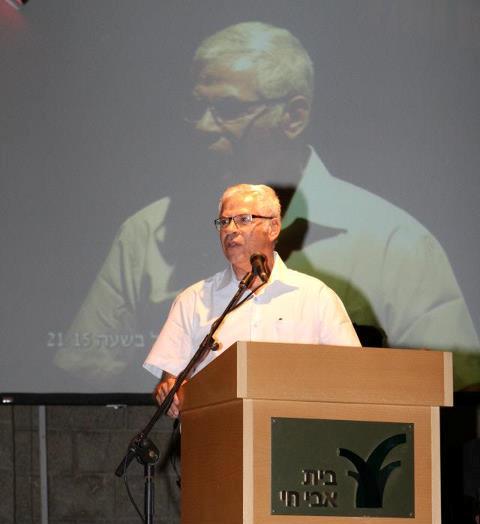
“I would like to reach the Jewish people wherever they are,” said Danieli, and Beit Avi Chai’s active and up-to-date internet site is an excellent means for achieving that goal, which lives up to Danieli’s statement that “virtual presence is as important as live presence for a cultural institution.” The site not only includes information on Beit Avi Chai’s many activities, with live broadcasts of programs and clips of past events, but is truly an entity unto itself. The site extends Beit Avi Chai’s reach, making its programs accessible to everyone anywhere, and extends its range, with the “Musaf” magazine and other unique content.
In reflecting on the past five years, which project gives Danieli the most satisfaction? “Our humorous activities,” responded Danieli, “I think that one of the most effective ways to deal with the reality of our lives, Jewish values and the Jewish calendar and the most serious concepts of our existence is through humor. “Kalabat Shabbat,” “Slaughtered Cow” and the “Cabinet” are all very apt ways to look at the essence of Jewish/Israeli life. I think that we have been path breakers in establishing the legitimacy of looking at issues in this way.”
As Beit Avi Chai looks to towards the future, they remain dedicated to their tradition of surprising and challenging the audience with new perspectives and possibilities. The popular miniature Sukkah exhibit/competition will be taking place at the Israel Museum this year, and the Piyyut Festival will open on September 10, 2012 with “Mohammed Abdel Wahab and Umm Kulthum in the World of Piyyut” – a tribute to Arab-Jewish culture, with a focus on Classical and modern Arab music and its relationship over the years to piyyut and the music of prayer in the synagogue. Artistically directed by Elad Gabay and Dr. Nizar Raduwan, the concert will be performed by the Nazareth Orchestra, conducted by Dr. Nizar Raduwan, featuring soloists Rabbi David Menahem and Maamun Zayud.
Explore the possibilities of Beit Avi Chai on their website and facebook page, read about past and future Beit Avi Chai events on Midnight East and check the Midnight East calendar for information on events, and enjoy photos from Beit Avi Chai’s 5th anniversary celebration concert featuring Knessiyat HaSechel with the Mediterranean Andalusian Orchestra conducted by Tom Cohen on the Midnight East facebook page.




